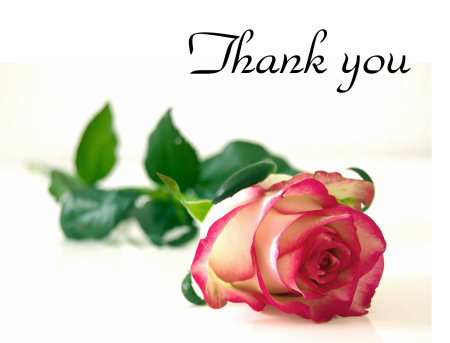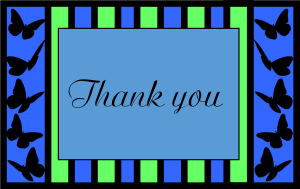Welcome to the School Days, Reminiscences series in which my champion bloggers and authors share reminiscences of their school days. It’s my small way of thanking them for their support and of letting you know about their services and publications.
This week, I am pleased to introduce Joy Lennick, author and poet. Joy joined in the conversations from the outset, sharing snippets from her war-time schooldays. Intrigued to learn more, I invited Joy to join in with a post dedicated to her own reminiscences and she accepted. I’m certain you’ll find them as interesting as I do.
Before we begin the interview, I’ve invited Joy to tell you a little of herself:
From a young age, I was never happier than when reading or writing (and perhaps dancing!). I was evacuated with my two brothers to live on a mountain (Hare) in Wales, being half Welsh on my mother’s side, and grew to love Wales. My education was completed in Pitman’s College, London, from the last year of the war. At fifteen, I became a shorthand-typist, and worked for an agency in the East and West ends of London, which I really enjoyed.
After marriage just before the age of 21, and living in London for a few years, the Suez Crisis debacle flared up and petrol was so short and the atmosphere so “war-like,” we set sail for Canada, where we lived and worked for eighteen, unforgettable, months.
Returning to the UK due to home-sickness…in 1960 I had my first son, followed by No.2 in 1962 and No.3 in 1968. I contracted but beat cancer, so was very lucky. We then ran a green-grocery/grocery store for several years. After its sale, and the children went to school, I returned to work in the city as secretary to the two editors of Kaye & Ward, an old established publishing company in the city. (My dream job!)
The next chapter saw us buying a small hotel in Bournemouth as we both enjoyed cooking and people. We turned a dark, mean place into a thriving business, I lost a stone (yippee) and gained a few muscles, and we thoroughly enjoyed the whole business, even though it was hard work. Tastes were changing and the hotel was old. We needed more cash than we had to make it more comfortable, so – with regret, sold it and returned to Essex to live. And that is when I learned about “Serendipity,” and became a writer, quite by chance.
A letter from Kogan Page Ltd of London “commissioned” me (?!) to write a book for them, subject to approval of the first two chapters. I couldn’t wait! “Running Your Own Small Hotel” was approved. I had been recommended by one of the editors I’d worked for who had read some of my poetry and an article I’d had published. The book did well and went to reprint. There was even an exciting “Authors’ party,” and I updated two of their books and wrote a second called “Jobs in Baking and Confectionery,” which also sold well.
In between working for my local junior school, part-time, I then ran a modest, while successful poetry club, and wrote a few poems and articles, which were published. I also received a few rejection letters…par for the course!
Fast forward too many years, and we retired to Spain, I joined The Torrevieja Writing group and won the first Torrevieja International Short Story competition with a Time Traveller tale called “Worth its Salt,” then was a writing judge for two years.
Next came a memoir: “My Gentle War” which went to No.1 in Kindle’s Social History and Memoir category. A true sea adventure story: “Hurricane Halsey” followed, then my only novel “The Catalyst,” covering one of the terrorist bombings of a train in London in 2005, but with fictitious characters. I also wrote several stories which were included in WordPlay’s anthologies – later called Writers’ Ink (our off-shoot Ezine is called INK SPOT). Then came “Where Angels and Devils Tread,” a collection of short stories written with author friend Jean Wilson; and a modest collection of jokes and humorous poems written with my husband, Eric: “The Moon is Wearing a Tutu.” I also edited husband’s book “A Life Worth Living,” and updated “From the Prairies to Paschendeale,” for a friend. I am at present working on a book about the “Dombrowski family.”
I took a Creative Writing class for the U3A for several years and am in the “Chair” for Writers’ Ink here in Spain.

Welcome, Joy.
Let’s talk school. First, could you tell us where you attended school?
Where did you go to school?
1937: Dagenham Infants school
1939: Twynrodyn Junior School
1941: Hunters Hall school
1943: Eastbrook senior school, Long Eaton senior school, Derbyshire
1944: Neath senior school
1944: Pitman’s College, London.
Did you attend a government, private or independent school?
All Government schools, except Pitman’s College, London, which was private.
What is the highest level of education you achieved?
Highest level: Pitman’s where I received various certificates for hand-writing/typing/shorthand and commerce.
What work or profession did you choose after school and was there anything in school that influenced this choice?
I started as a shorthand-typist, became assistant secretary and then secretary. Also assisted husband in running a greengrocery/grocery shop and became a hotelier. I was then a Dinner Lady/School assistant and did voluntary work with the elderly before writing professionally.
What is your earliest memory of school?
My earliest memory at Infants school was writing my name in sand on a shallow tray and playing the triangle and the tambourine in the school band.
What memories do you have of learning to read?
I was immediately fascinated by the letters and words on a page and took to reading straight away. I read anything and everything: ingredients on cereal boxes, comics, etc., and was always lucky enough to be given books for my birthdays. I joined the library in MerthyrTydfil and devoured books from age seven — Hans Christian Anderson and the frightening Bros. Grimm, et al.
What memories do you have of learning to write?
As for writing, my father was a keen letter-writer (positive views on many subjects to the local newspaper) and wrote beautiful Calligraphy which I greatly admired and wanted to emulate. He kept stamps and made a few admirable displays with delicate work around each stamp. I was proud to be told I had a “good hand!” and of my hand-writing certificate. Shorthand later made it a bit scruffier…
What do you remember about math classes?
I had a problem with maths. Adding, subtracting, decimals and fractions was coped with OK but if I was thrown a maths ‘puzzler’ I’d freeze…I coped fine when we had our shop, and did the accounts when we ran the hotel as it was comparatively straight-forward, but I much preferred English.
What was your favourite subject?
Most definitely English, and because of the very nature of war — between the years 1939,when it began and 1945 when it ended, there were, periodically, huge disruptions in my schooling, especially when the siren sounded. At such times, we were read to and had to ‘Read quietly!’ by ourselves, which I found a joy. I also loved composing stories and enjoyed spelling. I even wrote a silly play which was acted on the stage. Poetry also pleased my young ears. I was particularly fond of Hiawatha because of the delightful rhythm. I couldn’t take to Shakespeare when young but loved it later when, at the ripe age of 66 I finally took and passed the English Literature exam – much to the amusement of my younger peers…

What did you like best about school?
I made friends quite easily, despite being shy and was a chatter-box, in spite of the annoying habit of blushing if a boy spoke to me. In fact, I blushed a lot as I was often unsure of myself, but always enjoyed having friends at school. There was so much to learn, and I have always been a curious person. I was lucky in that I was never bullied and got on with most children, and was also fortunate with the teachers, except for my maths teacher at Pitman’s who had no patience with my many questions…Miss Jones, my English and Games teacher at Pitman’s was my favourite.
What did you like least about school?
To be fair, the mores of the times were dictated by the state of the whole world, as very little was as ‘normal’ as in peace time. Some children were killed or injured and lost loved ones and air raids disrupted many classes, especially in London, Coventry, Norwich and many other towns. We children went back-wards and forwards to home and Wales several times in between the bombing for long weekends and holidays. And when I attended Eastbrook senior school in Dagenham, the bombing increased and the whole school was evacuated to Long Eaton in Derbyshire. It must have been a nightmare for the teachers to keep to a curriculum!
How do you think schools have changed since your school days?
There is no comparison between my schooldays and those of my three sons. Only one was bullied because he was more studious and wouldn’t join an unruly gang. Fortunately, the headmaster sorted it out. All three received a fair and satisfactory education. I have no grand- children to comment on present conditions but do have friends who were teachers. They both complained about the increased paper-work, which – apparently – is an ongoing problem for teachers today.
What do you think schools (in general) do well?
From my ten years working as a Dinner Lady and reading/poetry assistant in a junior school, I’d say that, over-all, today’s children are in pretty safe hands, education-wise. The technological strides forward are amazing, and I’m personally pleased to see more musical appreciation and tuition being introduced in some schools
How do you think schools could be improved?
It’s no secret there are a lot of problems in the world, generally – of course there always have been – but because of technology and the immediacy of news reaching eyes and ears, it is often exaggerated in our minds. Too much paper-work still seems to overload some teachers, and I wish there was more emphasis put on caring for each other. Not all parents are equipped for the job they undertook…(as my husband says: ‘You have to pass a test to drive a car, but any idiot can have a child…’ Religion should be discussed broadly, but taught and practiced in specific schools, not mainstream, although children should be helped to accept and live and let live, when taught about caring.

Thank you for sharing your reminiscences of school and thoughts about education in general, Joy. How disruptive your schooling was as a result of the war. You seem to have overcome any obstacles that it may have created. It’s been a pleasure to have you here and get to know you and learn about your school days and your achievements.
Find out more about Joy Lennick
Website: https://joylennick.wordpress.com/
Contact her at joylennick@gmail.com
Or connect with her on social media
Twitter, Facebook, Linked In, Writers’ Ink
also a member of Authors/Bloggers Rainbow Support Club on Facebook
If you missed previous reminiscences, check them out here:
Look for future interviews in this series to be posted on Sunday evenings AEST.
Coming soon:
Darlene Foster
Pete Springer
with more to follow.

Thank you for reading. I appreciate your comments. Please share your thoughts.


